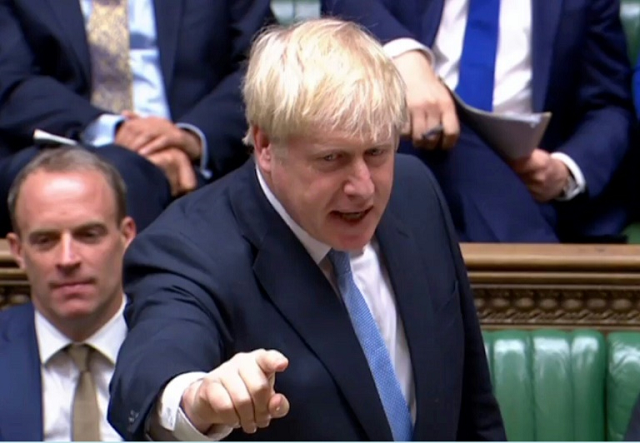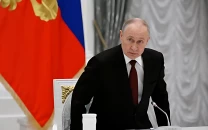Brexit will happen on Oct 31 despite PM's unsigned delay request, UK says
Parliament can't change government's policy or determination, says minister

File photo of UK Prime Minister Boris Johnson. PHOTO: AFP
The Brexit maelstrom has spun wildly in the past week between the possibility of an orderly exit on Oct 31 with a deal that Johnson struck on Thursday and a delay after he was forced to ask for an extension late on Saturday.
Johnson's defeat in the British parliament over the sequencing of the ratification of his deal exposed the prime minister to a law passed by his opponents demanding he request a delay until Jan 31.
Johnson insisted he did not want what he cast as a deeply corrosive delay to Brexit beyond the Halloween deadline. One of his most senior ministers said Britain would still leave the bloc on Oct 31.
"We are going to leave by October 31. We have the means and the ability to do so," Michael Gove, the minister in charge of no-deal Brexit preparations, told Sky News.
"That letter was sent because parliament required it to be sent ... but parliament can't change the prime minister's mind, parliament can't change the government's policy or determination."
"We are going to leave by October 31st."@MichaelGove says the letter seeking a #Brexit delay was only sent "because parliament required it to be", adding there was 'no guarantee' an extension would be granted.
— Sky News (@SkyNews) October 20, 2019
Read more on this story here 👉 https://t.co/fndsMAPl4R pic.twitter.com/UfLRtQF0oA
In an extraordinary step that indicates the extent of the Brexit fever gripping the United Kingdom, Johnson sent three letters to Donald Tusk, the president of the European Council.
First, a brief cover note from Britain's EU envoy explaining that the government was simply complying with the law; second, an unsigned photocopy of the text that the law, known as the Benn Act, forced him to write; and a third letter in which Johnson said he did not want an extension.
"I have made clear since becoming Prime Minister and made clear to parliament again today, my view, and the Government's position, that a further extension would damage the interests of the UK and our EU partners, and the relationship between us,"
Johnson said in the third letter, signed "Boris Johnson". The EU, which has grappled with more than three years of tortuous Brexit crisis, was clearly bewildered by the contradictory signals from London.
Tusk said he had received the request from Johnson. "I will now start consulting EU leaders on how to react," he said on Twitter.



















COMMENTS
Comments are moderated and generally will be posted if they are on-topic and not abusive.
For more information, please see our Comments FAQ